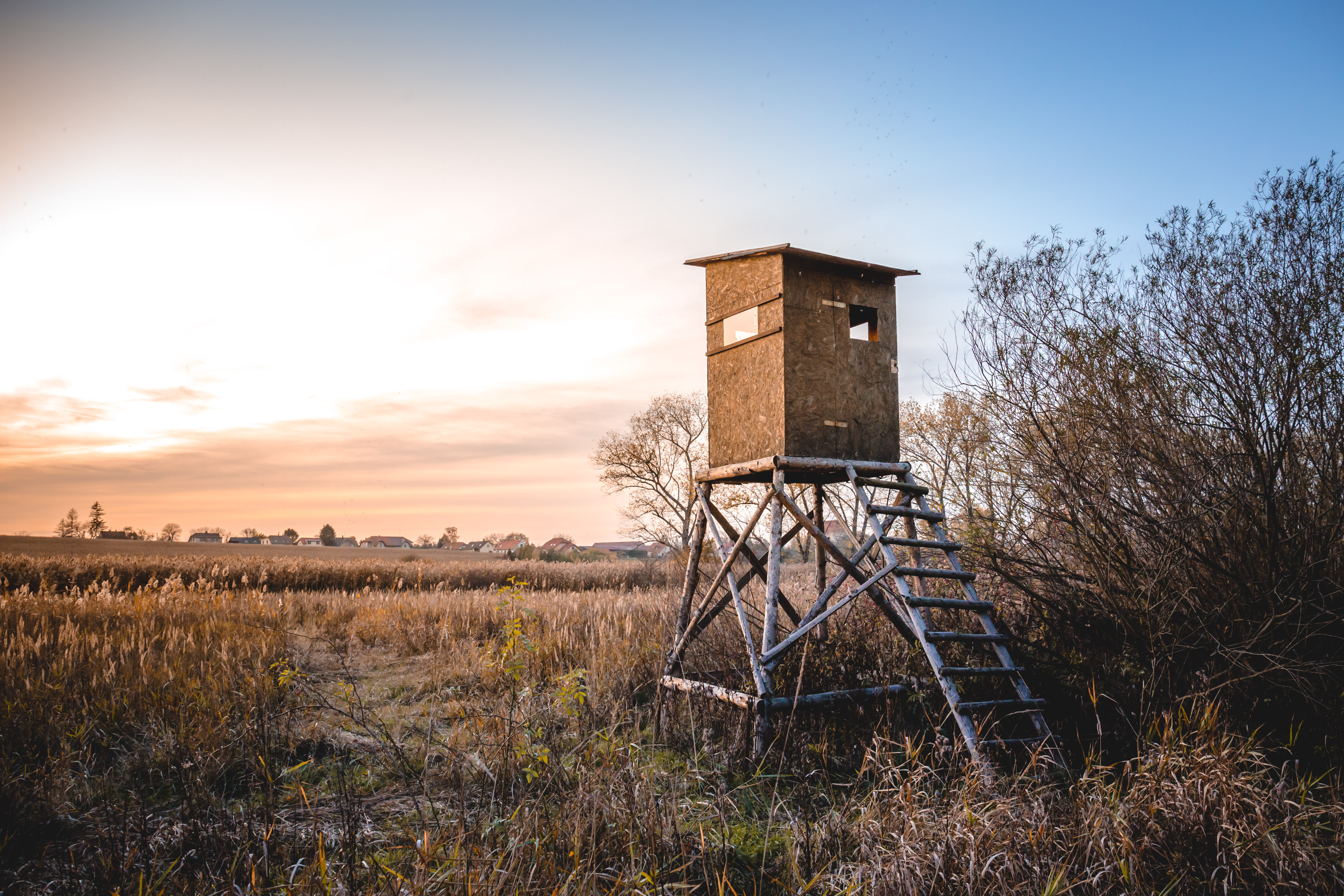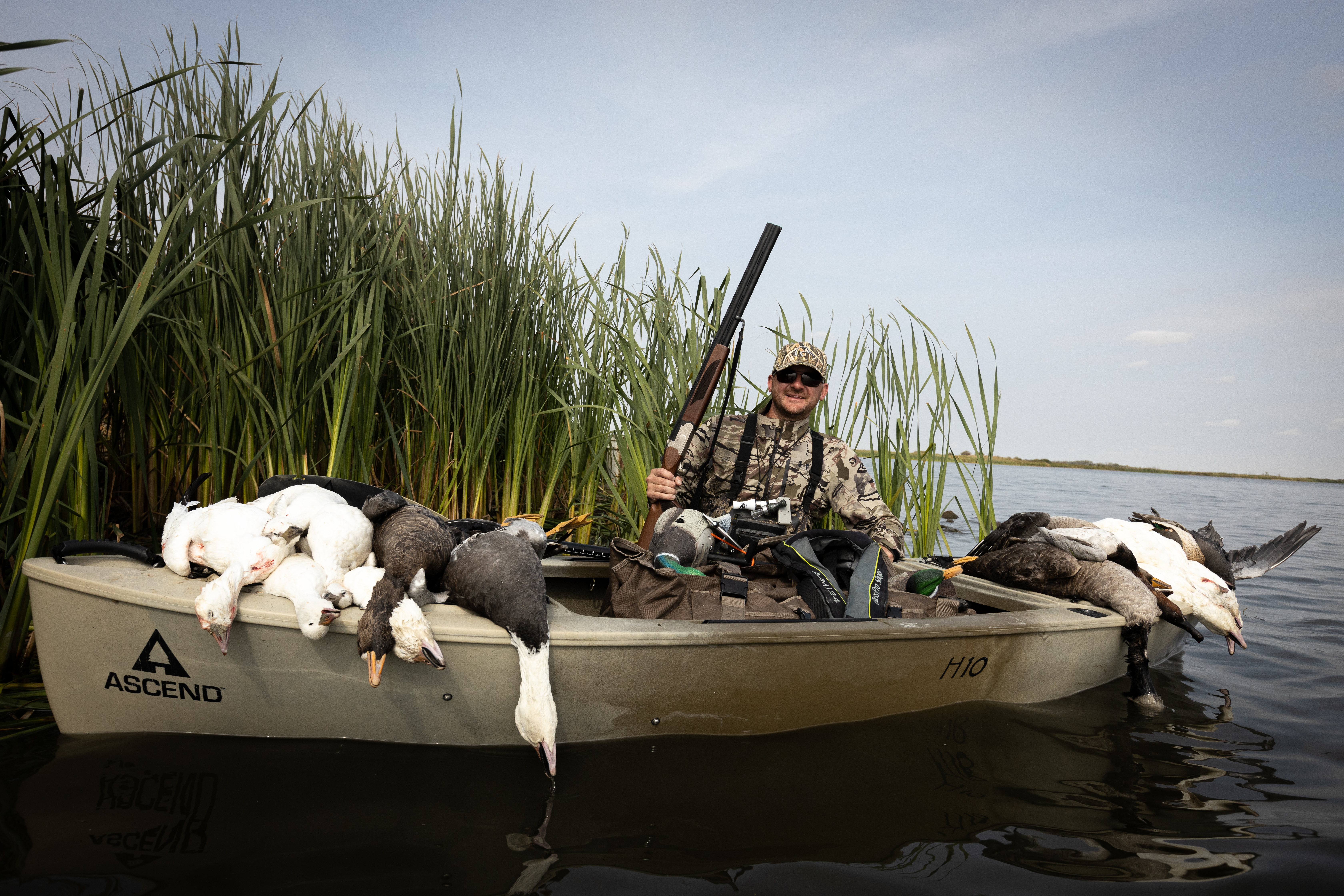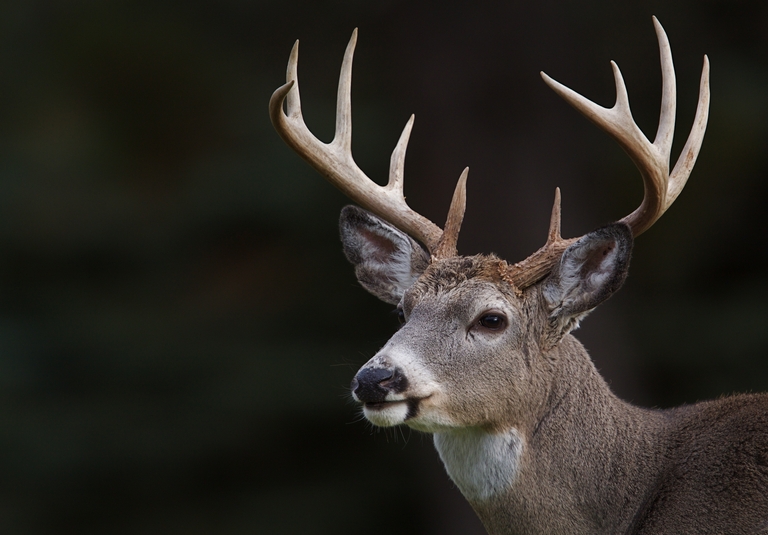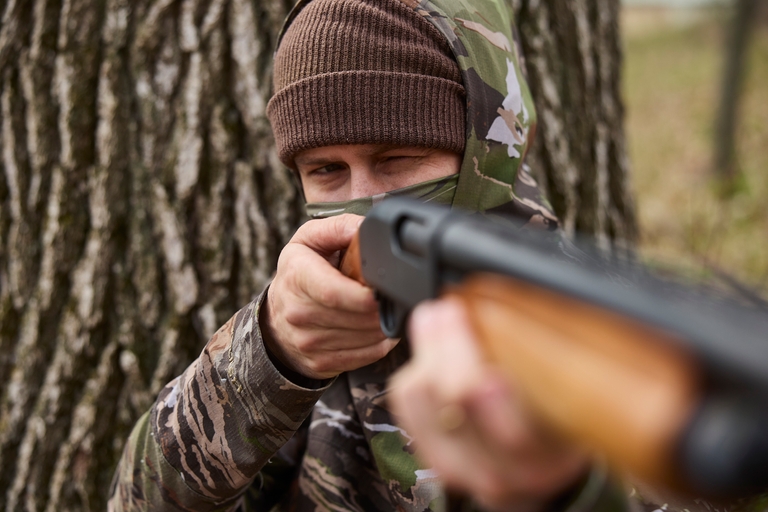What Should Be in My Essential Hunting Kit?

New and seasoned hunters need the right gear for every hunt. Having the right tools and essentials helps keep you safe and more likely to have a successful hunt.
So, what should you include in your essential hunting kit? Depending on the game you hunt and the time of year, the "essentials" can vary. Today, we'll give you some recommendations on what to carry into the field each time you hunt. We'll also talk about some other items to consider based on your specific hunt.

The Essential Gear You Need for a Successful Hunt
What should you start with when building your hunting kit?
The type of hunt you plan on should dictate exactly what you bring with you. However, generally speaking, there are some essentials every hunter should have. These include:
- Licenses (and possibly permits, depending on your state's laws)
- Required animal tags
- First aid kit
- Maps of the area and a GPS
- Compass
- Communication device
- Sharp knife
- Calls for your target animal
- Backpack to hold your gear
You'll also need to bring along your preferred method of take (aka gun or bow) and any accessories and ammunition.
Remember, it is essential that your ammunition match your firearm to load it correctly and that you inspect your arrows for any damage.
The Right Clothing
Dress for the weather and the terrain. This typically means camouflage, sturdy boots, gloves, rugged pants, and underlayers.
Waterproof or water-resistant clothing is useful in every environment, and moisture-wicking clothing will also help keep you comfortable. For warmth, seek wool or synthetic fibers; cotton will retain moisture and make you colder.
Be sure to wear the correct amount of blaze orange for your season and area. It will keep you safe from other hunters, who may mistake you for game. It's proven effective, and most game animals can't even see it!
All of this equipment can be found online, in sporting goods stores, or perhaps as hand-me-downs from a family member or friend.
Specific Gear for Your Hunt and Hunting Kit
Aside from the basics we just mentioned for any hunt, next, we'll discuss some additional items you may need, depending on your hunting needs. Depending on the time of year and the game you're after, what you need in the field can change.
Game Care Kit for Field Dressing
After a successful shot, you'll need to process the animal you took down. We recommend carrying the following items in your gear kit:
- Black pepper to repel insects
- Cheesecloth bags for organs you plan to use as meat
- Cooler and ice
- Disposable plastic gloves
- Fluorescent orange flagging
- Foil
- Gambrel and pulley system
- Hand towels
- Large bag for caped or trophy head
- Plastic bags for cleanup
- Plastic or cotton gloves
- Salt (non-iodized) for hide care
These items help you efficiently dress your game in the field before you bring it home.
Survival Kit and Equipment
You never know when something can go wrong in the field. Even with the best tools and apps to help you predict the weather during your hunt, weather can change unexpectedly.
To be prepared for anything while hunting, we recommend bringing the following items with you:
- Base plate compass with signal mirror
- Candle
- Emergency high-energy food
- Extra boot laces
- Extra pair of glasses
- Extra two-day supply of prescription medicine
- Fire starters (waterproof matches, butane lighter, etc.)
- First-aid kit
- Fishing line and hooks
- Flashlight with spare batteries and bulbs
- Folding saw
- Iodide tablets for water purification
- Knives
- Map
- Metal, waterproof carrying case that can double as a cooking pot
- Nylon rope
- One-sided razor blade
- Plastic sheet or large garbage bag
- Poncho
- Signal flares
- Small can of lighter fluid
- Snare wire or twine
- Thermal foil blanket
- Tissues
- Water
- Whistle (plastic)
While you might not need all of these items if you only plan to hunt for a day or part of the day, you'll have them if those plans change and you find yourself stranded away from your camp or truck for the night.
Equipment for Firearm Hunters
If you plan to hunt with a firearm, pack these items in your kit:
- Ear protection
- Eye protection
- A cleaning rod
- Swab
- Gun case for transport
Safely transporting a firearm is crucial for a successful hunt! Make sure you have a good case in the back of your vehicle to store your shotgun or rifle before and after hunting.
Equipment for Archery Hunters
If you plan to hunt your game with a bow, bring the following items with you:
- Three-fingered gloves or finger tabs
- Mechanical release
- Armguard
- Quiver
- Broadhead wrench, if appropriate
While you don't want to overpack (so you can move quietly in the field), having everything you need to take your shot and bring home your trophy is important.
If You Use an Elevated Stand
Safety is crucial when using equipment to elevate your shot (literally)! Practice sound safety techniques when using tree stands, and bring the right equipment to prevent an accident, including:
- Safety harness
- Climbing line
- Haul line
- Whistle
Even if you're a seasoned tree stand hunter, using a safety harness can prevent an injury (or worse) if you fall.

Hunters Using a Boat
If you use a boat while hunting waterfowl, bring (and wear) a personal flotation device. Find a lifejacket that works well with your hunting clothing and gear so it doesn't hinder your shot or make noise.
Having the right gear can be the difference between a difficult situation and a perfect hunt, so always plan accordingly!
Don't Forget Your Hunter Education Certification
In addition to the gear we've mentioned today, you'll also need a hunter education certification. This knowledge can help you avoid unsafe situations and potential accidents when hunting.
Most states require a hunter safety course to purchase a hunting license. So, if you're planning your gear for your next hunt, make sure your safety certification card is on your list! Hunter-Ed makes it easy to take a state-approved course and pass the exam online. Our courses help hunters learn about preparation before a hunt to stay safe in the field, including survival techniques and gear.
Find the course for your state and start learning for free with our online study guide!
Originally published October 16, 2015. Content updated August 7, 2023.


